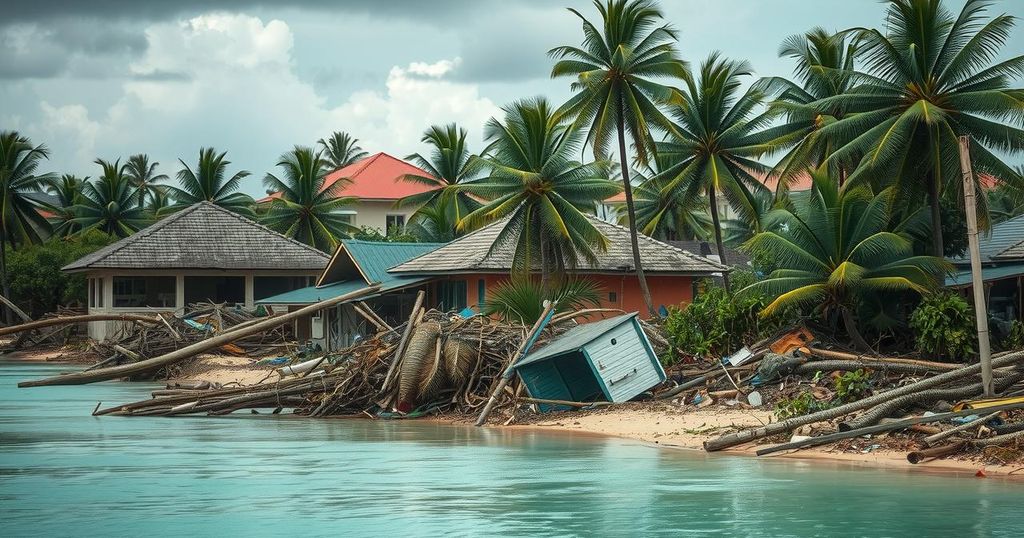Humanitarian Crisis in Mozambique: Addressing the Aftermath of Tropical Cyclone Chido

Tropical Cyclone Chido has left Mozambique in dire humanitarian need, affecting over 453,971 individuals, resulting in 120 fatalities, and causing extensive destruction to homes and infrastructure. Areas, particularly in Cabo Delgado, faced near-total devastation. The crisis compounds pre-existing challenges, such as drought and conflict, necessitating immediate funding and comprehensive humanitarian response to prevent further loss of life and support recovery efforts.
The humanitarian landscape in Mozambique has been severely impacted by Tropical Cyclone Chido, which made landfall on December 15, 2024, leading to catastrophic consequences for local communities. Torrential rains exceeding 250 mm and wind speeds of 120 km/h resulted in significant infrastructural damage and loss of life. Affected areas, particularly in Cabo Delgado, have seen an unprecedented number of individuals impacted, with over 453,971 people affected as of December 24, including 120 fatalities and 868 injuries. Current assessments indicate widespread devastation: approximately 70,000 homes, 250 schools, and various healthcare facilities have been compromised, necessitating urgent intervention.
Tropical Cyclone Chido struck Mozambique during a period of existing crises, already strained by droughts, conflict, and a cholera outbreak. The cyclone exacerbated vulnerabilities, particularly in regions like Cabo Delgado, where populations had previously sought refuge from violence. The scale of destruction in affected districts, alongside limited connectivity and infrastructural damage, complicates humanitarian efforts. Prior preparative actions by the government, including early warning systems, have mitigated some loss of life but have not sufficed to handle the overwhelming humanitarian needs that have arisen since the disaster.
The immediate humanitarian needs following Tropical Cyclone Chido exhibit alarming magnitudes, requiring critical assistance for shelter, healthcare, education, and mental health support. Additionally, rising concerns about gender-based violence and the psychological impact on affected populations emphasize the need for a comprehensive response. Immediate funding and resources must be mobilized to avert further humanitarian crises and ensure that communities can recover from the extensive damages imposed by the cyclone. A considered, urgent response is essential to facilitate recovery and rehabilitation in Mozambique.
Original Source: reliefweb.int






